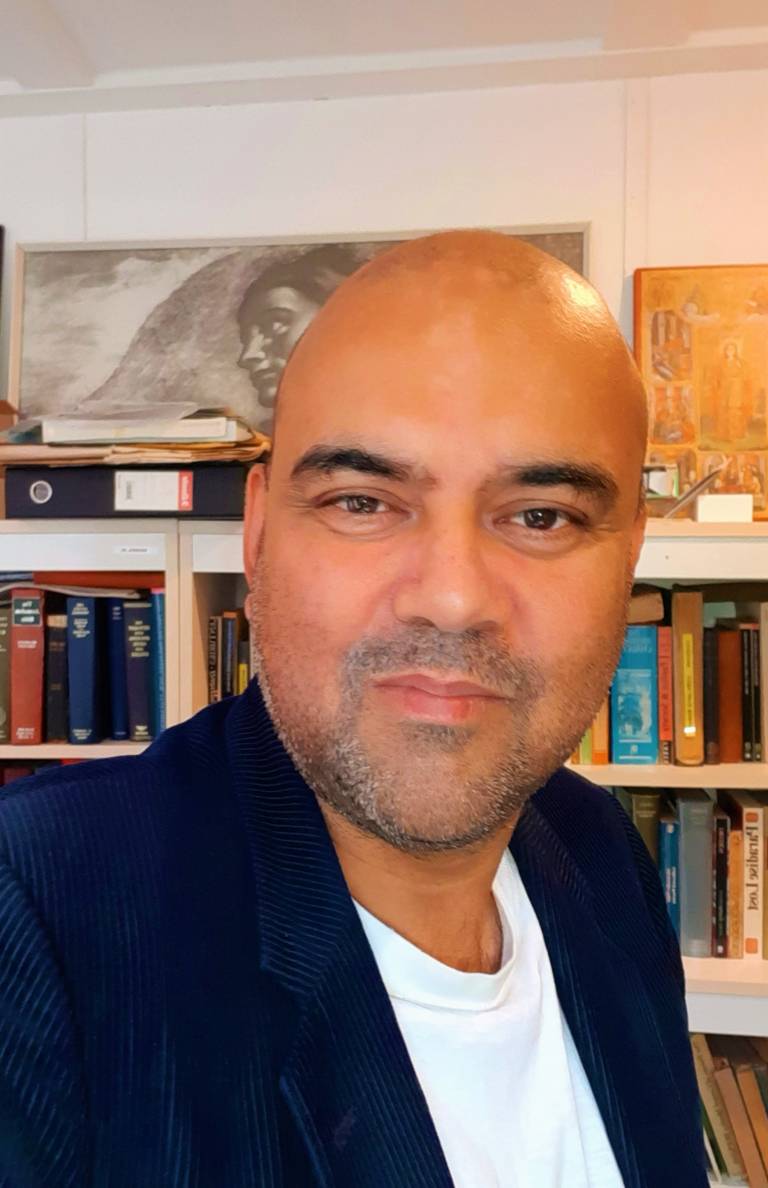UCL History welcome Dr Mark Frost, who joins us as an Associate Professor in Public History
12 September 2020
UCL History is delighted to welcome Dr Mark Frost to the department, where he joins us as an Associate Professor in Public History. We chatted with Mark about his research interests and what advice he has for new and returning students.

Hi Mark – welcome to the department! Can you tell us a little about yourself?
I was born in the UK, my mother is from south India and my father from south London. I then grew up in Australia before living in the UK, Singapore, Hong Kong and more recently back in the UK again. There have been a lot of journeys in there, which probably explains my long interest in the history of mobility and circulations – not to mention the history of the British Empire. At the same time, I research and contribute to ‘public history’, which one could define as the representation of the past delivered, consumed and (increasingly) made outside academia. Early in my career, I was given the chance to work on the revamp of a major Asian history museum (one packed with multimedia exhibits). I got the bug and ever since have tried to combine my academic research with exhibition design and, more recently, documentary film work.
What does your research focus on?
I started as a historian of the colonial encounter in modern Asia, and particularly of the cultural ramifications of that encounter. A by-product of late British imperialism was that while forms of knowledge and cultural practice were being neglected, disrupted, destroyed or re-ordered, they were also being produced, reproduced and circulated with a sudden new intensity.
More recently, my research interests have increasingly merged with my public history activities. Having co-designed museum exhibits focused on World War Two in Asia, I became interested in the war remembrance boom that has seized the region, and especially in the transnational dimensions of this explosion. This interest led me to my current project on heritage making and its impact on the fragile post-civil war context of modern Sri Lanka (a country which I first researched back as a PhD student).
I am also just about to finish my work as writer and co-producer/director of a feature-length documentary about counter-culture music in post-independence Singapore, from psychedelic blues-rock to punk and beyond. This work has ignited in me the desire for a future project that will explore such a history in a wider Southeast Asian context. I’m convinced it’s a story worth telling, one that will illuminate hitherto relatively unknown histories of decolonization and nation-building in the region.
That sounds interesting! Which courses will you be teaching on this year, and how will they link with your research?
I will teach a Masters course entitled ‘Memorialisation: Remembering Conflict and Mass Violence’. It will draw on my research into the remembrance of violent pasts in South, Southeast and East Asia. But it will also explore how these pasts are represented, erased and used in a global context. I expect us to cover a range of topics of particular contemporary relevance: from the remembrance of imperial violence and slavery in modern Britain, to the memorial wars in the US, to heritage-making and reconstruction efforts in the Middle East.
What are you most looking forward to about starting at UCL History?
It’s big, diverse, and, from my experiences so far, forward-thinking and open-minded. It’s exciting to be teaching, researching and even practicing public history in such a stimulating environment, at the heart of a global city where public history is everywhere – visible or waiting to be uncovered.
We have many new students joining us in September, and many returning for their second and third years. What advice would you give to these young historians?
A teacher of mine once told me that when it comes to historical enquiry, don’t ‘play it safe’. Be bold and go where your passion is. This will get you through those days when you are neck-deep in dusty old files with barely decipherable handwriting, or wading through turgid secondary literature that you don’t want to read but have to read. I have always appreciated that advice because it has meant that history has invariably been exciting and surprising for me.
 Close
Close

